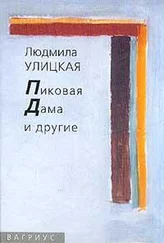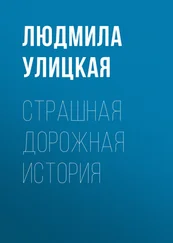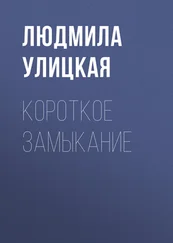Georgii threw a few more sticks on the fire, and they crackled and lit up the kitchen.
What a good life he could have here in the Crimea, if he could just make up his mind to write off these ten lost years, the discovery he had never made, the dissertation he had never finished and which sucked him into itself like an evil quagmire if he went anywhere near it. And yet, no sooner were Akademgorodok and that moldering pile of papers out of sight than his dissertation contracted into a dark little lump which he tended to forget. He should build a house here. He knew the top officials in Theodosia—they were all the children of friends of Medea’s. He could build it at Atuzy or on the road to Novy Svet. He’d seen someone’s gaunt, half-ruined dacha there. He should find out whose it was.
Medea was thinking along the same lines. It was him, Georgii, she would like to see come back here, so that the Sinoply family should again be living in these parts.
They drank the vodka slowly, the old woman dozing off and Georgii mulling over how to make an artesian well: it would be good if he could get hold of an industrial drill.
CHAPTER 2
Elena Stepanyan, Georgii’s mother, belonged to a highly cultured Armenian family and had had no expectation at all of becoming the wife of a rather simple Greek from a suburb of Theodosia, the elder brother of her bosom schoolmate.
Medea Sinoply was the star in the firmament of the girls’ grammar school: her exemplary exercise books were to be shown to future generations of school students. The girls’ friendship began with covert but intense rivalry. That year, 1912, the Stepanyan family had not left to spend the winter in St. Petersburg as they usually did, because Elena’s younger sister, Anait, was suffering from a chest complaint. The family stayed behind to winter in their dacha at Sudak, and Elena and her governess spent the whole year in Theodosia, living in a hotel. She attended the girls’ school and provided a formidable challenge to Medea’s reputation as its cleverest pupil.
Plumpish and affable, Elena didn’t seem flummoxed in the least and indeed appeared not to be competing with anyone. It was behavior explicable as angelic magnanimity, or satanic pride. Elena didn’t care two hoots about her successes: the Stepanyan sisters had received a good education at home and had been taught French and German by governesses. They had, moreover, spent their early childhood in Switzerland, where their father had held a post in the diplomatic service.
Both Medea and Elena finished the third grade with top marks in all subjects, but there was nevertheless a difference between their marks. Elena’s were effortless, with plenty in reserve: Medea’s were the hard-won product of sweat and toil. For all the unequal weight of their marks, they received identical awards at the prize-giving at the end of the year: dark green volumes of the selected works of Nekrasov, with gold lettering on the cover and a calligraphic inscription on the flyleaf.
The day after school ended, at about five in the evening, the entire complement of the Stepanyan family drove up unannounced to the Sinoply mansion. All the women of the house, with Matilda at their head, her by now somewhat faded hair tidied under a white head scarf, were drawing out the dough for baklava beside a large table in the shade of two old mulberry trees. The easier part of the procedure, performed on the table itself, had been completed and now they were teasing out the edges of the dough on the backs of their hands. Medea was taking a full part in this, together with her sisters.
Madame Stepanyan threw up her hands. When she was a child in Tiflis, they had made baklava in exactly this way.
“My grandmother could do it better than anyone else!” she exclaimed, asking for an apron.
Stepanyan père , smoothing his greying mustache with one hand, observed the women enjoying their work with a benevolent smile, admiring the quick movements of their buttered hands in the dappled shade, and the light and delicate way they tugged the leaf of dough.
Afterward, Matilda invited them up to the terrace, and they drank coffee with candied fruits, and Armik Tigranovna again melted at a childhood memory of this dry allotrope of jam. Their shared culinary preferences, which had Turkish roots, disposed the illustrious lady even more in favor of this hardworking and united family, and the project which had initially struck her as dubious, of inviting a little-known girl from the family of a port mechanic to be the young companion of her daughter, seemed now to be eminently sensible.
The proposal came as a surprise to Matilda but was flattering, and she promised to consult her husband that very day. This evidence of proper matrimonial respect in such a simple family won Armik Tigranovna over even more.
Four days later Medea and Elena were packed off to Sudak, to a splendid villa on the coast which stands to this day, refurbished now as a sanatorium, not too far from the Upper Village to which many years later the common descendants of Armik Tigranovna and red-haired Matilda, who had teased out the baklava dough so deftly, would come to stay.
Each of the girls found perfection in the other. Medea appreciated the aristocratic directness and radiant kindness of Elena, and Elena greatly admired Medea’s fearlessness, her self-reliance, and a particular womanly giftedness of her hands, partly inherited, partly learned from her mother.
At night, lying on their firm, medically approved German folding beds, they engaged in long, deeply meaningful conversations and retained from that time for the whole of the rest of their lives a deep emotional bond, although in later years they were barely able to recall what it was that they had talked about so confidentially until dawn.
However, Medea distinctly remembered Elena telling the story of how one night when she was ill she had seen a vision of an angel against the background of a wall which suddenly became transparent, and beyond which she could see a young, brightly lit forest; and what impressed themselves on Elena’s memory were Medea’s tales of the numerous finds in which her life was so rich. She went on to amply demonstrate her talent that summer by assembling a whole collection of Crimean gemstones.
One further incident they remembered was a fit of laughter which overcame them one night when they imagined their singing teacher, an affected young man with a limp, marrying the headmistress, a stern, enormous woman before whom even the flowers in the window boxes trembled.
When autumn came, Elena was moved to St. Petersburg, and that was the beginning of a correspondence which, with a few breaks, had already lasted more than sixty years. For the first few years they wrote to each other exclusively in French, which in those years Elena wrote considerably better than Russian. Medea made no small effort to achieve the same degree of fluency her friend had acquired strolling along the shores of Lake Geneva with her governess. The girls, following the intellectual fashion of those years, confessed their willful thoughts and intentions to each other (“. . . and I suddenly felt a strong desire to hit her on the head! . . . I knew the story of the inkwell, but said nothing, and I think that was a real deception on my part . . . and Mama to this day is convinced that Fyodor took the money, and I could hardly keep myself from saying that Galya had done it . . .”). And all this in French.
This touching baring of souls was abruptly interrupted by Medea’s letter of October 10, 1916. The letter was written in Russian and was short and to the point. It communicated the information that on October 7, 1916, the ship The Empress Maria had been blown up in the vicinity of the Bay of Sebastopol and that among the casualities was Georgii Sinoply, ship’s mechanic. Sabotage was suspected. The circumstances of a war which passed smoothly over into revolution and a chaotic civil war in the Crimea made it impossible to raise the ship at the time of its sinking, and only three years later, already in Soviet times, did further investigation show that an explosive device had indeed been placed in the ship’s engine. One of Georgii’s sons, Nikolai, was a member of the team of divers working to raise the sunken vessel.
Читать дальше




![Людмила Улицкая - Сквозная линия [litres]](/books/393468/lyudmila-ulickaya-skvoznaya-liniya-litres-thumb.webp)





